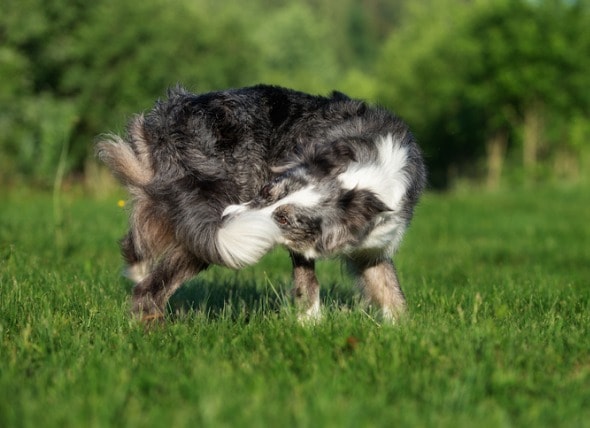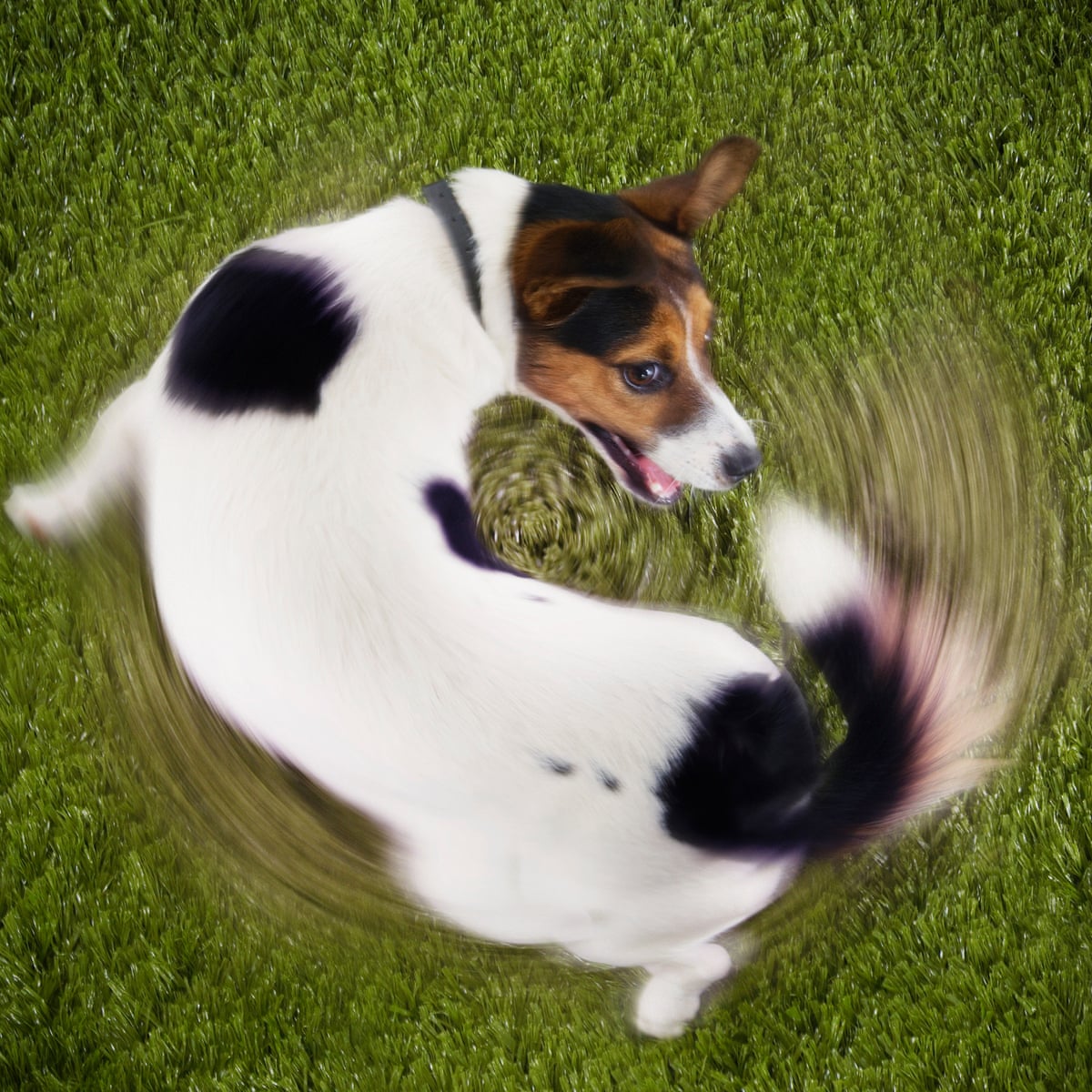
This could explain why your dog is licking or chewing on their feet or indeed chase their tail. If your dog is biting its tail it may be because it is suffering from environmental or food allergies.

Dogs may also have a food allergy with some dogs being allergic to poultry wheat potatoes or even some types of vegetables.
Why is my dog obsessed with chasing his tail. Sometimes dogs chew their tails because theyre bored or curious about their tail. Other times a dog chewing their tail can be a sign of something more serious. Here are a few of the most common.
Fleas and ticks are common reasons that your dog might chase their tail and biting their back end. The pesty parasites can cause irritation to the base of your dogs tail causing them to seem like they are chasing their tail when really they are just trying to bite their back end. Sputnik was a tail chaser and would spin for hours on end.
At the moment he is completely still. Like me it seems he keeps his obsessive side away from the public eye. Some dogs may develop a compulsive disorder that involves chasing their tail.
These kinds of behavioral problems can come about for many reasons confinement physical abuse past injury or trauma separation anxiety and so on and need to be addressed. Obsessive chasing could be due to a brain abnormality akin to seizure-like activity. Other reasons could be a painful area where a tail was docked an infection or.
Compulsive behaviors usually arise because your dog is attempting to soothe sensations of anxiety or frustration. If your dog is worried frightened or in physical pain theyll look to relieve that in whichever way they can. This could explain why your dog is licking or chewing on their feet or indeed chase their tail.
Hot spots on dogs thrive in conditions that are moist and warm and are a breeding ground for secondary infections to develop. If your dog has a hot spot on his tail the repeated chewing and biting of their skin will exacerbate the hot spot. Hot spots are recognizable by matted hair blood pus andor reddened and irritated skin.
Watching a dog chase her tail is undeniably entertaining but when she does it constantly it can get worrisome. Some dogs with anal gland problems flea allergic dermatitis or other medical issues have been known to chase their rear ends. Sometimes albeit uncommonly tail-chasing is a sign of obsessive compulsive disorder.
As soon as you see your dog start to chase his tail distract him with a toy food or attention to get him to stop. When your dog isnt in the stressed state of tail chasing teach him commands such as sit or lie down. You also can teach a trick such as shake.
Once your dog knows the commands you can use them when your dog starts tail chasing. An obsessive dog suffering from separation anxiety may chase his tail to help calm himself while his owner is gone. Or your dog may chase his tail when he feels overcome with anxiety when a stranger approaches the house or during a loud thunderstorm.
A dog that is excessively biting at his tail should be seen by a veterinarian. A veterinarian can exam your dog and run a few diagnostic tests which will help find the underlying cause of the tail biting. Impacted glands will be expressed by the veterinarian.
Gland abscesses may need to be lanced. For example a dog suffering from separation anxiety may bite his nails and chase his tail like a nervous person. This is a significant symptom of canine compulsive disorder.
If this is left unchecked this behavior may become self-destructive and your dog will end up damaging their tails. Having a dog that is obsessed with a ball can become an issue when your dog views the ball as more relevant than you and anything around him. This state of mind will essentially ensure conflict between your dog and others many dog fights occur due to competition for high-value resources between dogs.
The short answer is that light chasing in dogs is not a healthy behavior. Even if your dog doesnt fit the bill for a sufferer of CCD light chasing isnt a good thing. This holds true even if it looks like your dog is having fun his tail might be wagging as he dives after the reflection from your watch.
If your dog is biting its tail it may be because it is suffering from environmental or food allergies. Some of the most common environmental allergens include mold pollen or household chemicals. Dogs may also have a food allergy with some dogs being allergic to poultry wheat potatoes or even some types of vegetables.